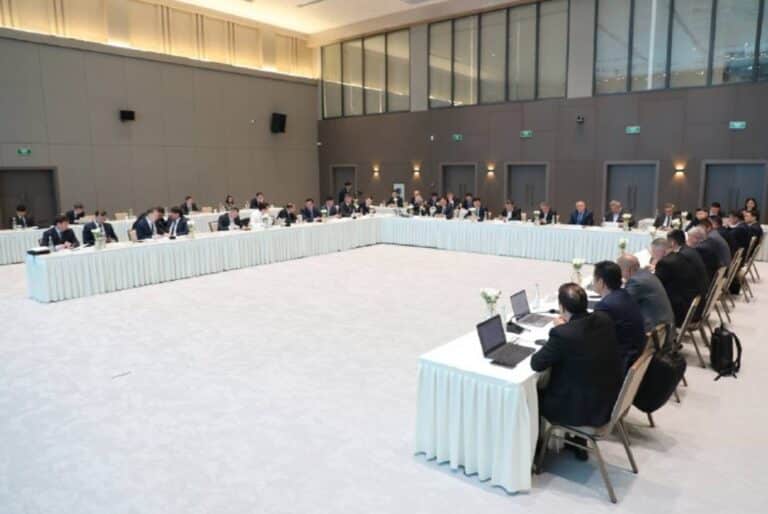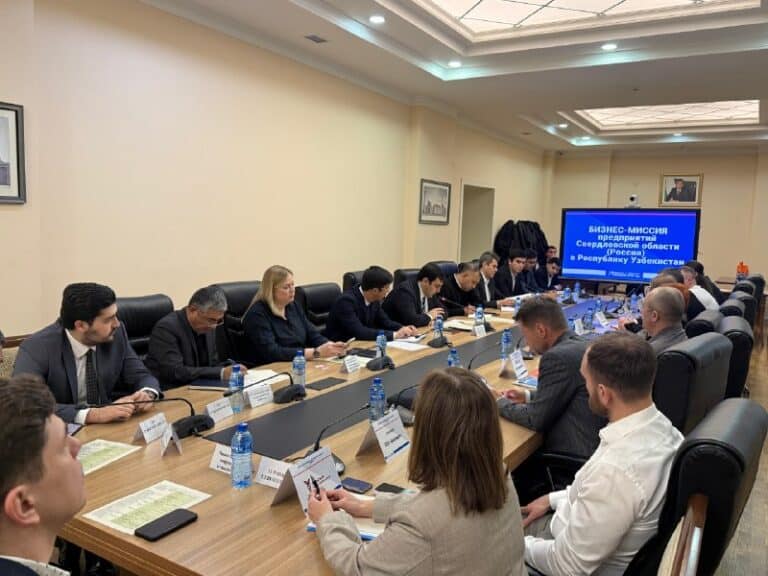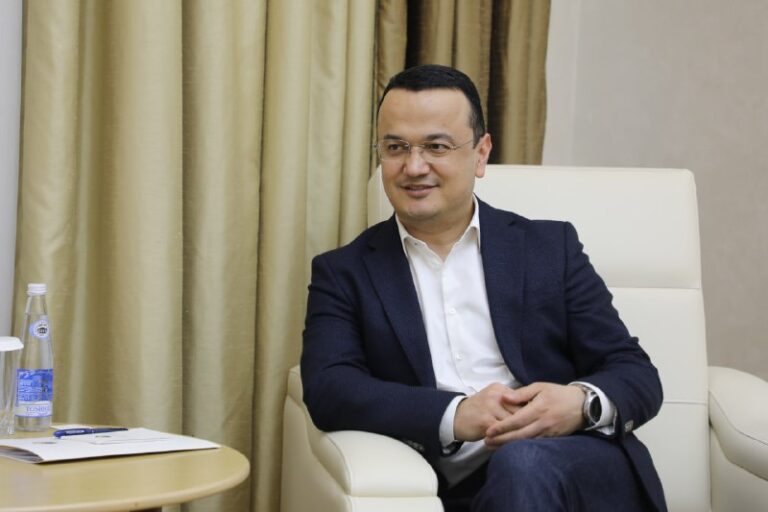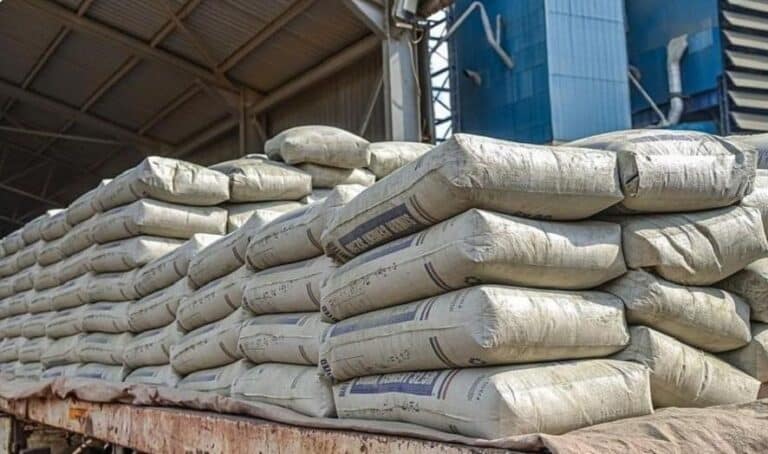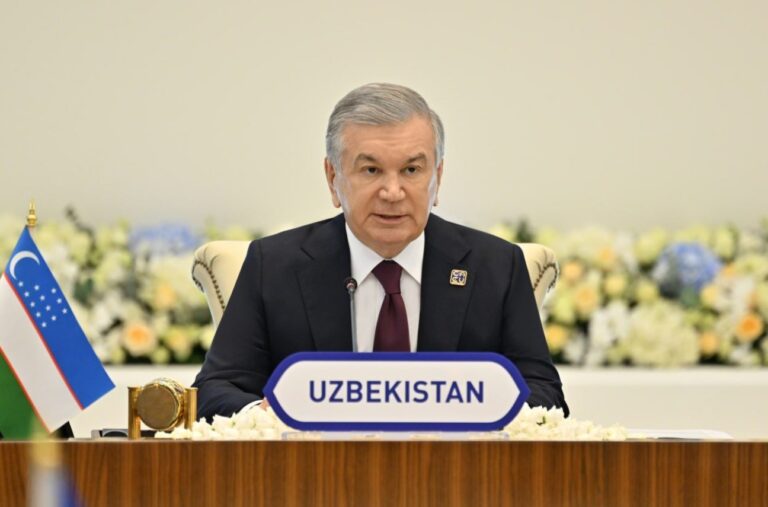The Latvian pharmaceutical company Olainfarm is the leading supplier of medicines in the Baltic States. Currently, the company’s products are available in over 60 markets worldwide, focusing on Central Asian countries as a priority area.

Kursiv talks to Juris Bundulis, Chairman of the Board of Olainpharm, about new pharmaceutical trends, the privatisation of Uzbek pharmacies and the production sector.
Not just medicines
— Mr. Bundulis, could you tell us about your company? What does Olainfarm represent in today’s context?
— Olainfarm is one of the largest companies in the Baltic States, boasting 50 years of experience in the production of medicines and chemical-pharmaceutical products. Our medicines are recognised in numerous countries, and our product range includes over 60 finished dosage forms, 25 active pharmaceutical ingredients, and more than 20 intermediates. We offer various medications for treating the nervous system and cardiovascular diseases, as well as antiviral, antibacterial, and antihistamine drugs. Since 2011, the World Health Organisation has pre-qualified our anti-TB medicines for supply. Additionally, the company has extensive experience in manufacturing and developing pharmaceutical products such as adamantane, quinuclidines, and nitrofurans.
We are committed to investing in preclinical and clinical drug research and modernising our production facilities. In 2022, Olainfarm AB’s investments in research and development amounted to EUR 8.1 mln, reflecting a 32% increase from 2021. This investment represented 7.1% of the company’s total turnover for the year. We are also allocating significant resources to automate our production and packaging processes, expand our product range and upgrade our laboratories.
From broad to narrow
— What are your plans for developing the product line, and what investments are anticipated for this purpose?
— The company’s shareholders have approved an investment package, which will allow us to invest 100 mln euros in product development and production modernisation. We aim to increase our export volumes by at least 80% during this period.
Olainfarm is rapidly expanding not only in Europe but also in Central Asia, and we are actively seeking opportunities to enter both South and North American markets, as well as other regions.
Cardiovascular diseases are the leading cause of death worldwide, resulting in a consistently growing demand for cardiology products. Additionally, with the high incidence of prostate cancer and urinary tract infections, there is an increasing interest in products for the treatment of urological conditions.
Developing and registering new products in these therapeutic areas is crucial for strengthening our position in Central Asian and Western markets.
Our strategy is to expand our product portfolio by introducing at least ten new products each year.
— What are the company’s goals and plans for Central Asia, particularly Uzbekistan?
— We aim to expand our geographical presence and accessibility across all Central Asian countries, which are key target regions outlined in our company’s development strategy. We are also focusing on increasing our activities in European markets.
In Uzbekistan, we have significantly increased our workforce, doubling the number of employees this year. Additionally, we have transitioned from a representative office to a subsidiary to better establish our presence in the country.
We are actively monitoring market trends and exploring the possibility of collaborating with local producers to localise certain stages of production. However, this process islocalize due to the necessary certification and the approval of numerous legal documents required to ensure that even the final stages of drug production meorganizeinternational standards.
Furthermore, we have launched a social program called ‘Cosmic Calm’ in Uzbekistan. This program serves as an effective tool in the doctor-patient interaction chain. It is an online platform where paediatric neurologists can monitor the progression of diseases and the patient’s treatment process, while parents can maintain a diary of their observations. Given Uzbekistan’s high birth rate, this tool is particularly beneficial.
Less expensive medicines
— Are there any plans to provide training for local staff in Uzbekistan?
— We are always committed to enhancing our employees’ skills through training. This approach is tailored to meet the specific needs of each employee rather than being tied to any particular educational institution. We highly regard the education of medical professionals trained at universities in Uzbekistan, and the foundational training they receive is adequate for new staff to work successfully in our company.
— What logistical and transportation challenges does the company encounter when supplying Central Asian countries, particularly Uzbekistan?
— So far, we have yet to encounter any serious logistical problems. However, there are certainly areas for improvement in the existing transport system. One possibility is the establishment of a direct cargo flight between Riga and Tashkent. Currently, the only available option is a transit flight via Istanbul, which adds extra kilometers and increases the cost of products and the logistics time.
Perspectives for Development in Uzbekistan
— Uzbekistan is currently undergoing a privatisation process, where pharmaceutical companies and privatisation are being offered for sale. In your opinion, is it essential for pharmaceuticals to be in the hands of private businesses, or is it better for the state to control the production and sale of medicines?
— In Latvia, the pharmaceutical industry has become one of the most important sectors of the national economy, contributing significant added value due to its long-standing history. More importantly, this sector is represented by robust private companies that export most of their products to international markets.
I believe the pharmaceutical industry, particularly its largest companies like JSC Olainfarm, would not have developed as successfully if Latvia had not embraced a market economy model and pursued privatisation across most sectors since its independence 30 years ago. However, the pharmaceutical industry is heavily regulated, competition and the ability to operate in a free market environment promote business growth and innovation in research, facilitating the introduction of new products to the market.
— How do you evaluate the pharmaceutical market in Uzbekistan, which some experts describe as monopolistic?
— Uzbekistan is a country that places significant emphasis on its local pharmaceutical companies investing heavily in developing the pharmaceutical industry. In 2022, the government approved a target program to implement investment projects in the pharmaceutical sector across various regions of Uzbekistan from 2022 to 2024. One of the key objectives is to expand the research and production pharmaceutical cluster at the Tashkent Pharmpark.
The state support for the domestic pharmaceutical industry is intensifying competition, which presents challenges and growth opportunities. Ultimately, providing quality and affordable healthcare is essential for the population’s well-being.
— What are the main trends in the pharmaceutical industry today?
— Society’s expectations for healthcare quality are rising, and the global pharmaceutical industry is experiencing significant growth. Future projections indicate that this trend will continue in all regions worldwide.
In Uzbekistan, where the demographic situation is favourable and the population is consistently increasing, attention is being paid to public health. The government prioritises the affordability and accessibility of medical services for the population, considering both cost and geographic distribution. This signals to pharmaceutical companies that Uzbekistan is a market worth investing in. Expanding access to quality medical care and therapies can improve the community’s health, leading to a better quality of life and enhanced overall well-being.
It was also reported that there are plans to implement two hundred pharmaceutical projects in Uzbekistan in the coming years, with a total investment of $725 mln.


